Manama: the capital of Bahrain throughout history from a fishing village to a cosmopolitan city
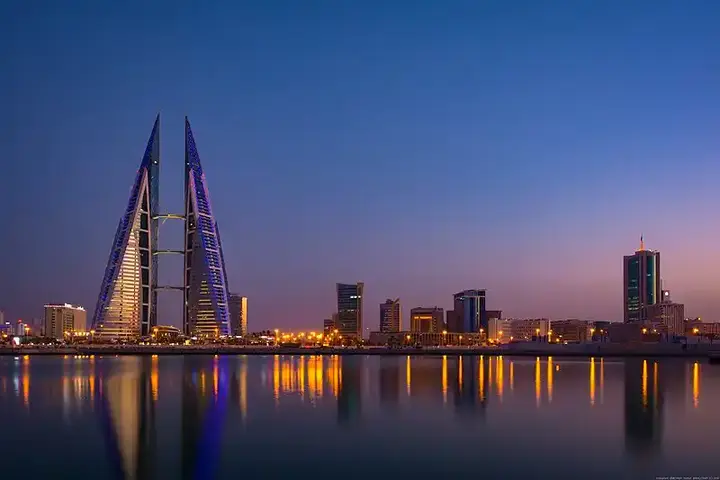
Located on the northeastern coast of Bahrain Island, Manama is the capital and largest city of the Kingdom of Bahrain. Manama is strategically located on the Arabian Gulf, making it an important commercial hub throughout history. Manama also enjoys a rich cultural and civilizational diversity, and a long political and civilizational history. In this article, we will discuss the most important stations of the political and cultural history of Manama.
Show key points
- Manama, the capital of Bahrain, has evolved from a thirteenth-century fishing village into a vital political, economic, and cultural center in the region.
- Over centuries, Manama experienced significant development milestones, including becoming Bahrain's capital in 1783 and undergoing economic transformation after the discovery of oil in the twentieth century.
- Key historical events such as the 1820 British treaty, the 1971 independence, and the 2011 Arab Spring protests have played crucial roles in shaping Manama's political landscape.
- ADVERTISEMENT
- Manama houses important cultural landmarks like Bahrain Fort, the Al Fateh Grand Mosque, and the Bahrain National Museum, reflecting its rich civilizational heritage.
- The city hosts numerous annual cultural events, including the Spring of Culture Festival and the Bahrain International Music Festival, showcasing its vibrant artistic scene.
- As an economic hub, Manama contributes significantly to Bahrain's GDP through its active trade, booming tourism, and robust financial services sector.
- Despite its progress, Manama continues to face challenges such as political unrest and economic pressures, influencing its path toward a more prosperous future.
1. The origin and development of Manama
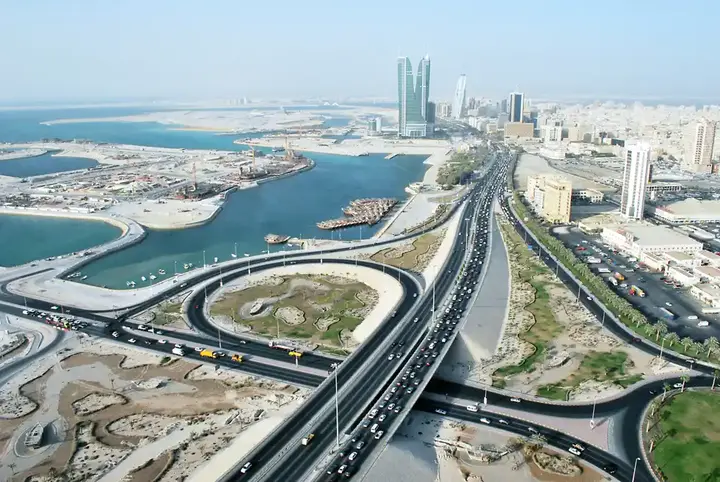
Manama dates back to the thirteenth century, when it was a small fishing and pearling village. Manama flourished during the fifteenth and sixteenth centuries and became an important trading center on the trade route between India and the Middle East. In 1783, Manama became the capital of Bahrain.
Recommend
The most important stages of Manama's development:
● Thirteenth century: Manama emerges as a fishing and pearling village.
● Fifteenth century: Manama flourished as a trading hub on the trade route between India and the Middle East.
● Sixteenth century: Bahrain Fort is founded by the Portuguese.
● Eighteenth century: Manama became the capital of Bahrain.
● Nineteenth century: Manama flourished as a regional trading center.
● Twentieth century: The discovery of oil in Bahrain, leading to a major economic transformation in Manama.
● Twenty-first century: Manama has become an important commercial, tourist and financial center in the region.
2. The most important historical events in Manama
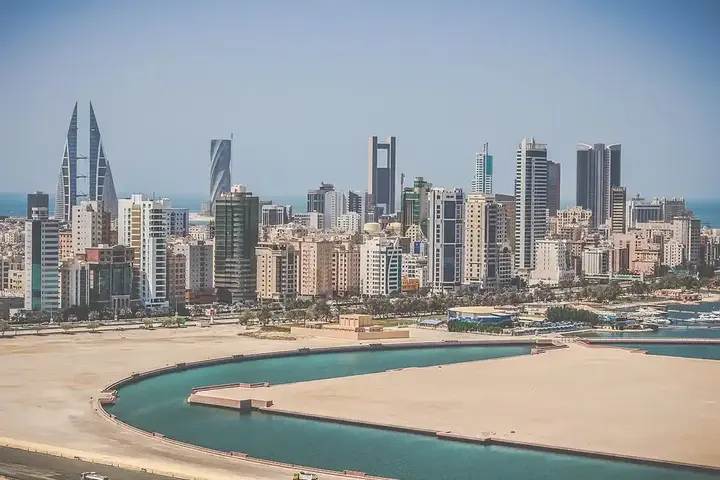
Manama has witnessed many important political events throughout history. In 1820, a treaty was signed between Britain and Bahrain, making Bahrain a British protectorate. In 1971, Bahrain gained independence from Britain, and Manama became the capital of the independent state.
Manama played an important role in the establishment of the Kingdom of Bahrain. Manama was the center of the Bahraini national movement, from which many protests and demonstrations against British rule began. Manama was also a center of political and cultural activity in Bahrain.
1820: A treaty is signed between Britain and Bahrain, making Bahrain a British protectorate:
Before 1820, Bahrain was under the rule of the Al Khalifas, who took power in 1783. The Gulf Arab region was witnessing a conflict between regional powers, such as Britain, Portugal and the Ottomans. Britain was seeking to expand its influence in the region and ensure the security of maritime trade routes.
In January 1820, a treaty was signed between Britain and Bahrain. The treaty stipulated that Bahrain would become a British protectorate and be protected by Britain from any external attacks. The treaty also included clauses on trade and customs.
The treaty transformed Bahrain into a British protectorate, leading to significant political, economic and social changes in Bahrain. Bahrain lost its sovereignty and was now under British rule. Bahrain's economy boomed due to trade with Britain. The introduction of British education led to cultural changes in Bahrain.
1919: Revolt against British rule in Bahrain:
After the signing of the Treaty of 1820, Britain's influence in Bahrain increased. This led to the discontent of some Bahrainis with Britain's control of their country. Resentment has intensified over Britain's policies, such as taxation of trade and customs.
In 1919, a revolt broke out against British rule in Bahrain. The revolution was led by Shaikh Isa bin Ali Al Khalifa. The rebels demanded political and economic reforms, and the abolition of the 1820 treaty.
Britain suppressed the revolt using military force. Many rebels were arrested, and some were exiled abroad. The revolution did not succeed in achieving its goals.
1971: Bahrain gained independence from Britain:
After World War II, demands for independence in Bahrain increased. Protests against British rule intensified. In the sixties, Britain began to review its policy in the Gulf Arab region.
On 14 August 1971, Bahrain gained independence from Britain. Shaikh Isa bin Salman Al Khalifa became the first Emir of independent Bahrain.
The attainment of independence led to significant political, economic and social changes in Bahrain. Bahrain became a fully sovereign state. Bahrain has tended to develop its national economy. Bahrain has seen improvements in education, health and social services.
1990: Iraq's invasion of Kuwait, leading to the Second Gulf War:
In August 1990, Iraq invaded Kuwait. This led to the Second Gulf War, in which Bahrain participated alongside the US-led international coalition.
Bahrain participated in the Second Gulf War by providing military bases to the international coalition. Bahrain also participated in air coalition operations against Iraq.
The Second Gulf War led to significant political, economic and social changes in Bahrain. Sectarian tensions have intensified in Bahrain. Bahrain has suffered an economic crisis due to a decline in foreign investment.
2011: Popular protests erupt in Bahrain:
In 2011, Bahrain was affected by the wave of popular protests known as the "Arab Spring". Bahrain was suffering from political, economic, and social problems, such as:
• Lack of job opportunities
•Corruption
• Sectarian discrimination
On 14 February 2011, popular protests erupted in Bahrain. Protesters demanded political, economic and social reforms, such as:
• Constitutional reform
• Increased participation of the people in decision-making
• Fight against corruption
• End sectarian discrimination
Protests escalated in Bahrain, reaching a peak in March 2011. Protesters occupied the Pearl Roundabout, a central square in Manama.
3. Civilizational and cultural monuments
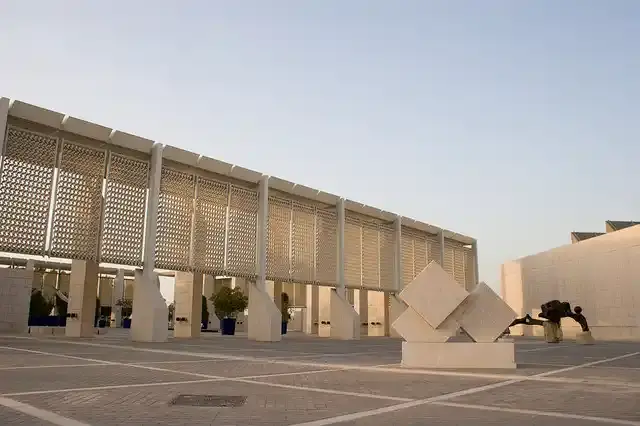
Manama is characterized by many civilizational and cultural landmarks, such as:
● Bahrain Fort: Located on the northern coast of Manama, it is a historical fortress that was founded by the Portuguese in the sixteenth century.
● Al Fateh Grand Mosque: The largest mosque in Bahrain, built in 1988.
● Bahrain National Museum: Showcases Bahrain's history and culture from the Stone Age to the modern era.
● House of Quran Museum: displays a collection of rare Quranic manuscripts.
● House of the Qur'an: An Islamic cultural center that includes a library and a school for memorizing the Holy Quran.
● Shaikh Ebrahim bin Mohammed Al Khalifa Centre for Culture and Research: A cultural centre that includes a library, an art gallery and a lecture hall.
● Bahrain National Theatre: Displays various plays and cultural events.
● Manama Souk: A traditional market selling local produce and handicrafts.
● Manama Corniche: Beautiful waterfront along the coast of Manama.
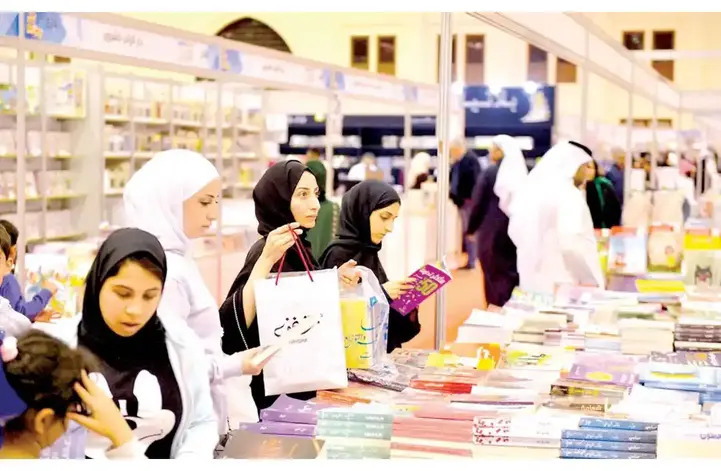
Cultural events in Manama:
● Spring of Culture Festival: An annual cultural festival held in Bahrain, which includes many cultural and artistic events.
● Bahrain International Book Fair: An annual book fair held in Manama, which includes many Arab and international publishing houses.
● Bahrain International Music Festival: An annual music festival held in Manama, featuring many artists from around the world.
4. Manama is an economic hub
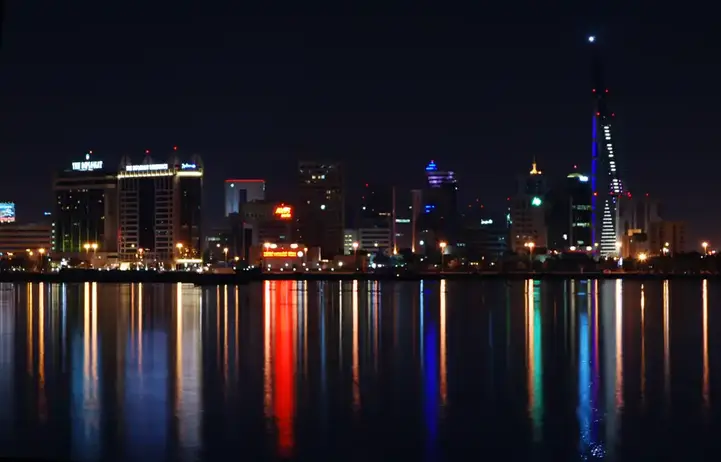
Manama is an important economic center in the region. Manama has a thriving commercial and tourism sector, and there are many financial and banking institutions.
The most important economic sectors in Manama:
● Trade: Manama is an important commercial center in the region, where there are many companies and commercial establishments.
● Tourism: Manama is an important tourist destination, as it has many hotels, restaurants, and tourist attractions.
● Financial Services: Manama has many financial and banking institutions, making it an important financial services hub in the region.
Manama plays an important role in the Bahraini economy. Manama is an important commercial, tourist, and financial hub, contributing significantly to Bahrain's GDP. Manama also provides job opportunities for many Bahraini nationals.
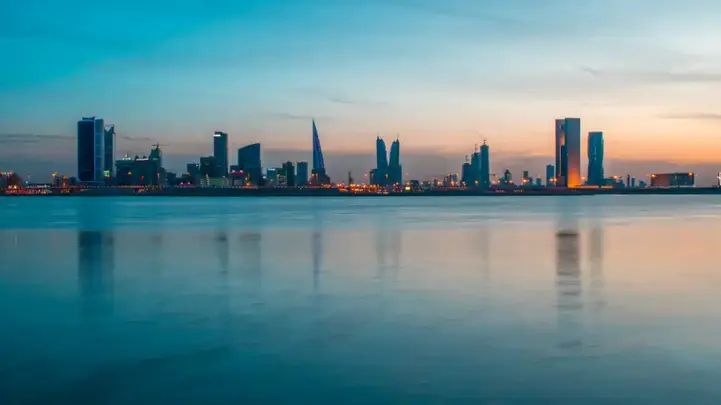
This was a journey through the history of Manama, the capital of Bahrain, which is an ancient historical city and an important political and economic center in the region. Manama is characterized by a rich cultural and civilizational diversity, and a long political and civilizational history. Manama has faced many political, economic and social challenges throughout history. Manama's future depends on its ability to solve these challenges and bring progress and prosperity to its people.








